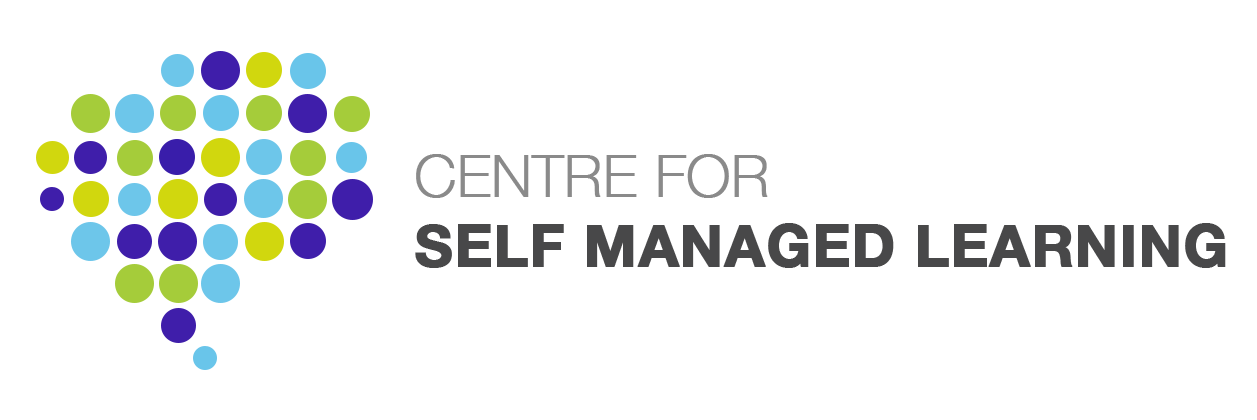09 May ‘My’ First Learning Group – Eight Years On
 Self Managed Learning has proved itself to me as a very powerful approach in the development of leaders, managers and employees. It is also an approach that demonstrably adds value. Having now been a participant in SML and a learning group adviser for 6 groups, I wanted to carry out a ‘health check’ on one of my first learning groups. My purpose was to establish whether the experience for my group was still adding value to their professional lives.
Self Managed Learning has proved itself to me as a very powerful approach in the development of leaders, managers and employees. It is also an approach that demonstrably adds value. Having now been a participant in SML and a learning group adviser for 6 groups, I wanted to carry out a ‘health check’ on one of my first learning groups. My purpose was to establish whether the experience for my group was still adding value to their professional lives.
[member]
I started advising my first learning group in January 1993. I had experience of being in a learning group through my Masters degree and I was convinced that the Self Managed Learning philosophy would be an entirely appropriate one to help deliver a superior development opportunity to senior managers in Pitney Bowes Ltd.
We began as an organisation by developing our learning group advisers (including myself). We then designed a ‘start-up’ module that explained the context and introduced a group of senior managers (departmental heads etc) to the principles of SML and the resources that were going to be made available to them.
The process was carefully thought through particularly as it was fundamentally different to any management development initiatives that had taken place in the past. The first ‘cohort’ of managers to attend became three learning groups and I was the adviser to one of these.
Today, seven years later, four out of five of the learning group are fulfilling different roles and three of them have changed company. Their transitions have also been interesting:
| Role at start (General) | Next Role | Present |
| Senior Manager – Product | European Board Director | President & Chief Executive of a .com business |
| Manager – Process | Senior Vice President Large American organisation | Runs own business |
| Manager Support | International assignment | Director Pitney Bowes |
| Manager Support | Vice President – Large Finance Business – City | Runs business |
| Manager Manufacturing | As left | As left |
In broad terms you could conclude that 80% of the group have developed their careers significantly, moving into more senior roles, in some cases this is very significant. The one person who is still working within the same role has consolidated his position, is happy with where he is and what he is doing. To what extent can we say that any of this was down to SML?
I decided to ask them what their recollections of the process were and what impact it had had on their development. The following is a summary of what they told me:
When did the learning group start? The learning group started in 1993.
Had you ever been in a learning group before? Only one of the members had previously been involved in a learning group before, as part of an MBA programme. To quote him, it wasn’t ”.as personally involved”.
What was your initial reaction to the style of learning? The views of the group varied quite considerably with this. It seems that there was a combination of ‘fear’ to a view that this was a ‘wishy-washy’ way of learning. There was a need from some group members to understand the big picture and to be told what to learn, whilst others recognised more quickly that this could become a very powerful tool. One group member remembers it felt like ‘.a blind man being put in touch with an elephant’.
How did this change as the learning group worked together? As the group progressed, the member’s opinions changed. For some it ‘became an awakening’ where they developed excellent questioning and challenging skills. Others felt that their defense mechanisms had been released, enabling them to receive criticism and then use it constructively.
How easy was it to develop a learning contract? What was the benefit of a contract? My own memory of the ease with which members were able to develop their learning contracts was that this was very varied. Some found it very straight forward whilst others developed contracts in such a way that their development needs were reflected to the learning group through the style of the document, even though they themselves couldn’t see it.
One group member said to me that, looking back, he didn’t know his capabilities at the time and through various iterations of his contract development he began to understand his skills and development needs much more clearly. One benefit was seen to be that of ongoing evaluation.
What did you like about the style of learning adopted in the learning group? The style of learning was variously remembered as ‘fun’, enabling individuals to ‘. break a few self-imposed boundaries’. The ability for in depth personal exchange was seen as very important. The group was viewed as an environment that allowed a level of interaction that was beyond the usual.
How has this style of learning helped you to develop as a leader? As the process/programme in Pitney Bowes was aimed at senior managers and potential leaders of the business, I saw this question as particularly relevant. There were a variety of comments ranging from positive to cautionary. For example:
- I am much more open about what is happening – I used to be closed.
- The process is very powerful; it helped in dealing with people and creating an environment where we can all help each other.
- I have referred to my contract many times since and the interesting thing is that I have achieved my goals – everything happened.
- I still keep my contract in my mind.
- My leadership style is now a lot more ‘hands-off’.
- This process helped people (in the group) to make decisions.
- I have developed more of coaching style.
- The organisation lost people as a result of this process – it therefore can be dangerous. It leads to tremendous energy, but also to self-dissatisfaction. Introduction to an organisation must therefore be handled with care.
- Don’t do this lightly unless you’re prepared to challenge your life.
I have found over the years that an inevitable consequence of SML is the raising of questions about career. Career is often an integral part of the development discussion so this is inevitable. I believe that giving people ‘permission’ to discuss their careers does send a powerful message within an organisation. It may also lead to people leaving. The big question is: Would they have left anyway? Are they now leaving happily, feeling that the organisation has been a good and worthwhile experience for them?
How did you perceive the role of the adviser? It changed over the 3-4 years that the group was meeting regularly. I was seen initially as a tutor/coach, and as time moved on, it was felt that I became more involved as a learning group member. I think this perception was almost inevitable as I was a peer of this group, working in the same business. However I never shared my learning contract with this group, and I never had my own ‘air time’ in meetings.
What would you say to anyone considering becoming involved in a learning group/group? The feeling from the group 7 years on is that people should ‘go do it’. It is very important and very powerful but needs very careful pre-handling by the organisation.
Summary
My own memory of this period is that a learning group, for an adviser, is as powerful an experience potentially as it is for a group member. We plan to meet again and I know that it will be second nature to go straight into the process. I would say that this learning group was and continues to be a significant success.
Rob Shorrick
[/member]

